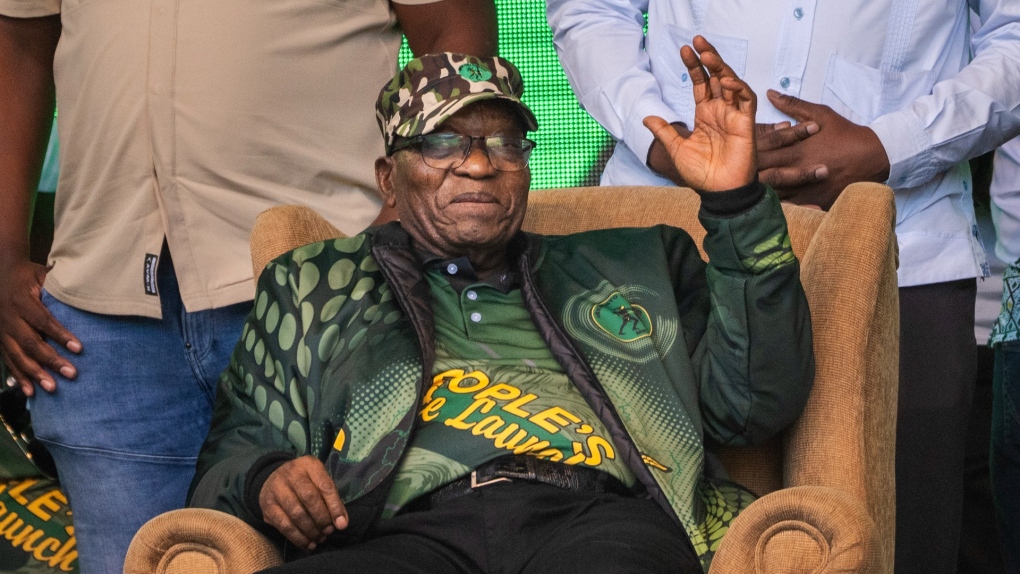
South Africa's top court rules former president Zuma cannot stand in election over criminal record
CTV
Former South African president Jacob Zuma was disqualified Monday from standing in a national election next week because of a previous criminal conviction, a decision by the country's highest court that's bound to raise political tensions ahead of a pivotal vote.
Former South African president Jacob Zuma was disqualified Monday from standing in a national election next week because of a previous criminal conviction, a decision by the country's highest court that's bound to raise political tensions ahead of a pivotal vote.
The Constitutional Court said that a section of the constitution disqualifying people from standing for office if they've been sentenced to more than 12 months in prison without the option of a fine does apply to the 82-year-old Zuma. Zuma was sentenced to 15 months in prison in 2021 by the Constitutional Court for contempt for refusing to testify at a judicial inquiry into government corruption.
The case over whether that sentence disqualified Zuma from next Wednesday's election came about because he had no option to appeal the ruling by the apex court that sent him to prison.
He was initially disqualified by the Independent Electoral Committee that runs South Africa's elections before he won an appeal to the Electoral Court, which said that because he didn't have any appeal options against the contempt ruling, it doesn't apply in his situation.
The Constitutional Court overturned that on Monday. It said Zuma is not allowed to run for Parliament for five years from when his sentence was completed.
Zuma was South African president from 2009-18, but resigned under a cloud of corruption allegations. He made a return to politics last year with a new party and has been fiercely critical of the ruling African National Congress party he once led.
The election is expected to be the toughest test for the ANC, which has been in government for 30 years since the end of the apartheid system of white minority rule. The ruling party is in danger of losing its majority for the first time, which would likely force Africa's most advanced economy into a national coalition government for the first time.
